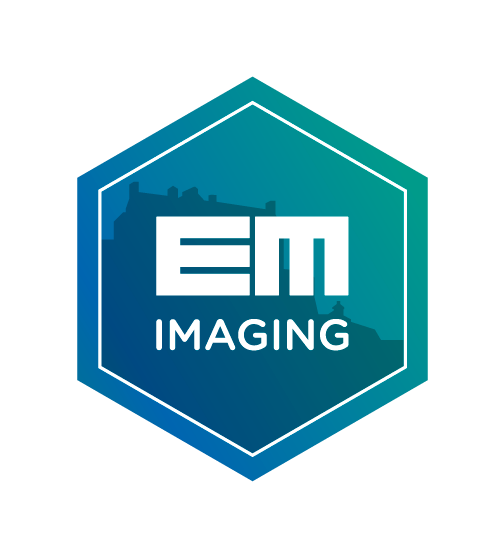Edinburgh, United Kingdom, 16 th September, 2015 – Edinburgh Molecular Imaging Ltd. (EM Imaging) has signed an exclusive global license for a novel optical imaging agent that could improve the detection of early-stage colorectal (bowel) cancer.
EM Imaging, a company which develops and commercialises novel optical imaging agents, recently signed the licensing agreement with GE Healthcare Ltd. and Dyax Inc. EM Imaging will now complete the development of this unique imaging agent “EMI-137” that can help doctors identify colorectal (bowel) cancer early.
In a recent scientific study, reported in the prestigious scientific journal Nature Medicine, the EMI-137 agent allowed doctors to see more early-stage colorectal cancer (CRC) and precancerous tumours, which can then easily be removed via colonoscopy. However, screening with a colonoscope, which is currently the most common method, can miss up to 25% of precancerous growths, especially smaller, flat lesions.
Dr James Hardwick, the lead investigator on the study published in Nature Medicine said:
“Of the 47 precancerous polyps detected in this study, 12 were missed using a standard colonoscope. This underlines how unreliable this method can be, and we therefore welcome life-saving new technology like EMI-137. This agent has the potential to make polyps light up like light bulbs – allowing clinicians to detect and remove more polyps, prevent more cancers and save more lives.”
Evidence that colorectal cancer can be prevented by the removal of pre-cancerous lesions and polyps (abnormal growth of tissue) is strong. The EMI-137 agent can help doctors more easily identify these suspicious lesions, take a sample (biopsy) or remove the lesion completely. Colorectal cancer is the second most common cause of cancer in women and the third most common in men, and is a major cause of death.
The Phase I/IIa study (Nature Medicine Link), in 35 subjects (20 healthy volunteers and 15 patients with high risk of CRC) shows that optical molecular imaging using the fluorescent agent specific for c-Met is feasible and safe.
Fluorescence colonoscopy in patients receiving intravenous EMI-137 enabled the visualisation of all neoplastic polyps that were visible with white light, and additionally, detected previously missed polyps that were not visible with white light alone. This enables the detection of polyps missed by other techniques.
EMI-137 is a water-soluble compound consisting of a 26–amino acid cyclic peptide, conjugated to a fluorescent cyanine dye, that binds to human tyrosine kinase c-Met, a receptor frequently overexpressed during cancer growth. EMI-137 has the potential on intravenous administration to image a wide range of cancers including, breast cancer, oesophageal cancer, ovarian cancer, thyroid cancer, bile duct carcinoma and lung cancer, due to its specific targeting of the c-Met–receptor.
Ian Wilson, CEO of EM Imaging, commented:
“Colorectal cancer is a major cause of death and this new agent has the potential to save thousands of lives through early detection. It gives providers the potential to effectively stratify patients, direct therapy choice and improve patient outcomes, while lowering the costs to the healthcare system. The team is extremely motivated to complete this product’s development and get it into the hands of clinicians in order to benefit patients. In addition EM Imaging will explore the utility of this new agent to visualise tumours during surgery, with studies planned to begin before the end of 2015.”
Sian Godwin, Head of Licencing at GE Healthcare, said:
“We’re pleased EM Imaging will develop and commercialise GE-137, as optical agents can be useful in clinical and research settings for a wide range of common diseases. We see broad partnership and licencing across our research and development portfolio as a way to increase access to new technologies in precision medicine, help develop better diagnostics for patients and reduce the cost of healthcare.”
Dr Neville Young, Programme Manager, Colorectal Therapies Healthcare Technologies Cooperative, said:
“The NIHR funded Colorectal Therapies HTC, based at the University of Leeds drives a national network of clinicians and academics who are funded to support the development innovative new technologies that have the potential to benefit patients affected by colorectal disease. We are excited to be working with EM Imaging to help demonstrate both the cost effectiveness and clinical efficacy of their new colorectal tumour tagging peptide. This technology offers the possibility to identify and remove more easily any cancerous polyps in a patient undergoing a colonoscopy.”
